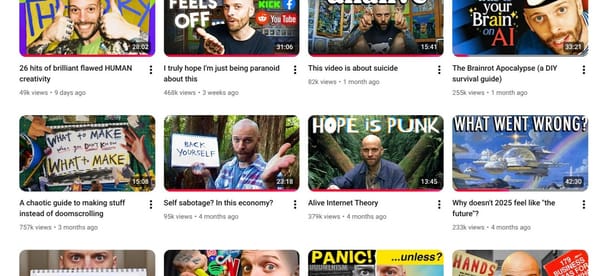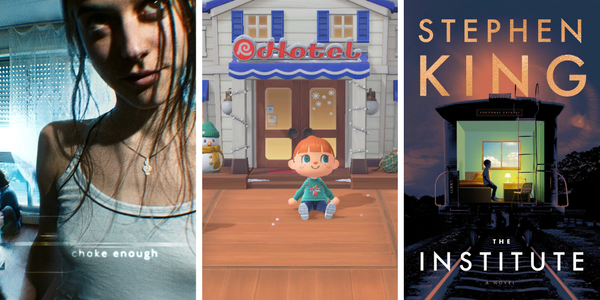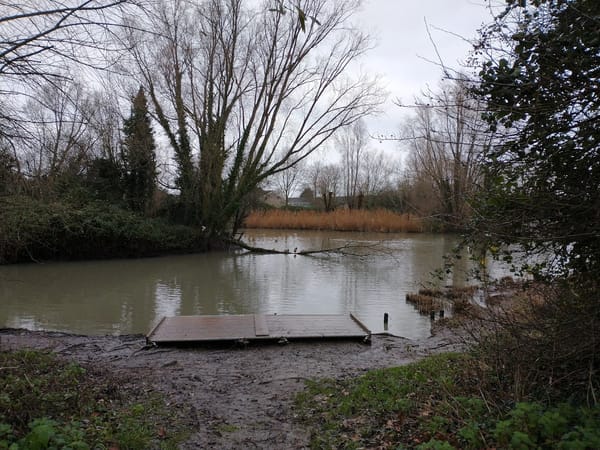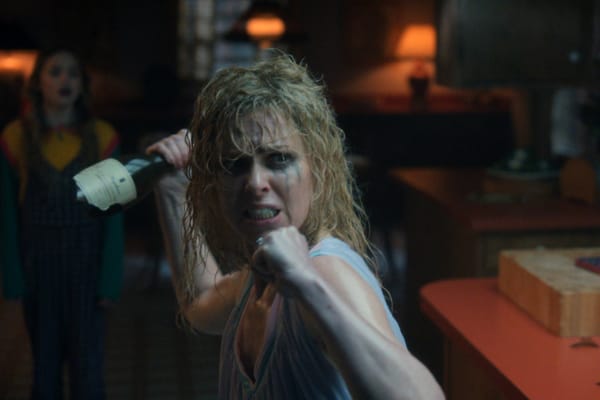A love letter to Balamb Garden, my fantasy school of choice
on finding something at just the right time
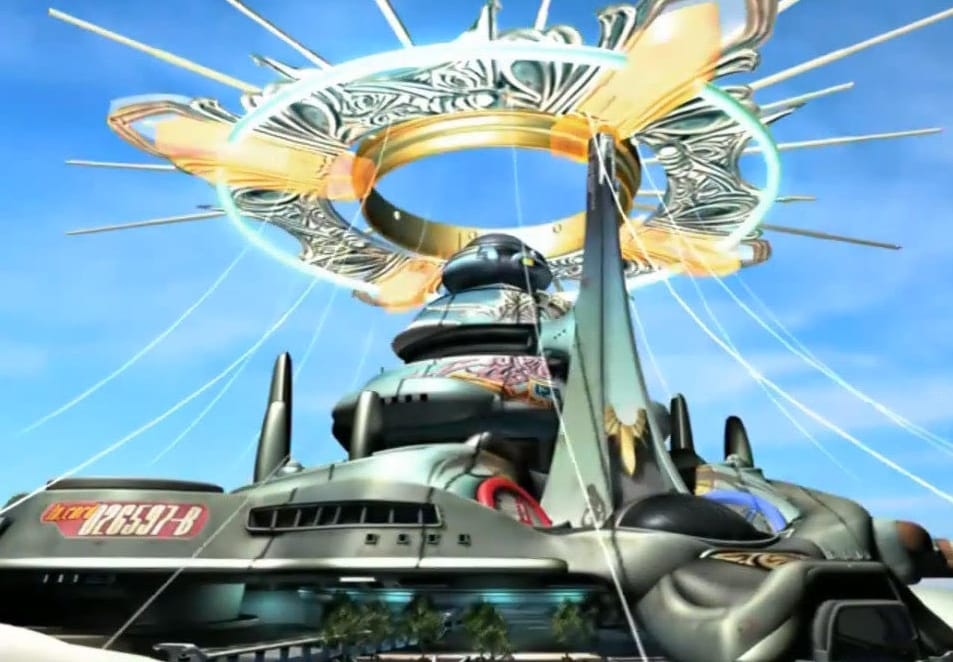
When I was a teenager, I had two games constantly battling for dominance in my heart. Final Fantasy VIII and IX were the backdrop of my life between the ages of 14-16. It's an awkward age for quiet girls, I think. Too old for toys, too nerdy and terrified to be into boys. I had good friends, but I quite liked to be alone after surviving the horrors of secondary school.
So in those hours between letting myself in and waiting for my parents to come home, I threw myself into my passions, which included reading, replaying Spyro: Year of the Dragon until I could do it without really looking at the screen anymore, watching the extended editions of all three Lord of the Rings movies and wondering which of the hobbits I could get to go out with me if I ever met them in real life, and dubious attempts at doing 'spells' before burying the evidence.
(Look. I know. But I lived in a village where there was nothing to bloody do, so why not attempt to communicate with various goddesses to see if they would grant me favours like good luck/boyfriends. It was either that or I got into drugs.)
Anyway. Now that you have the full picture of what kind of teenager I was, I think you can see why I loved these games. Final Fantasy IX is excellent. I adored every moment of it, and I think in terms of characters and plot, I preferred it to FFVIII. But the latter had three distinct advantages:
1) It was my first ever JRPG, except Pokemon, which is a vastly different experience
2) My Dad bought it for me as a surprise and hid it from me (and, crucially, my Mum) so it was a lovely surprise waiting for me on my bookshelf, and gave me warm, fuzzy feelings whenever I played it
3) The setting of Balamb Garden.

I'd like to take a second just to contemplate that first point. Imagine giving Final Fantasy VIII to a fourteen-year-old. Never played a meaty JRPG in her life and there she is, sitting cross-legged on her bed, squinting at her television and trying to figure out the junction system. It's amazing that I stuck with it, in hindsight.
I remember firing up the game as if it were yesterday. I watched Squall rubbing his head in confusion in the hospital wing. We explored the school, Squall and I; this was the first video game I'd ever played where the main character felt less like a blank slate and more like a real person. He was stubborn and surly and boyish. I felt like he could just refuse to do what I asked, if he wanted to. I took him to the classrooms, to the dorm rooms, and to the cafeteria to learn about the hot dog shortages. What was this strange place that trained teenagers to become soldiers? What were draw points? Who was Seifer, and why did Squall hate him so much?

By the time we got to Ifrit, I was hooked. My Dad printed me a walkthrough at work, an egregious use of company resources. It filled up one of those chunky A4 ring binders. And while I enjoyed the missions and the wider world, going back to Balamb felt like coming home.
I used to live a ten-minute walk from the beach. Sometimes, after a bad day, I'd make the walk alone. I'd find a quiet spot and watch the tide coming in. I'd imagine what it would be like if I lived in that world instead. If my own characters went to Balamb. What would happen to them? What would daily life look like there? It was a happy little escape from my actual life. I really wanted to live in a world where I could do something useful like fighting monsters, rather than just trying to survive secondary school as a tiny, bespectacled, awkward kid.
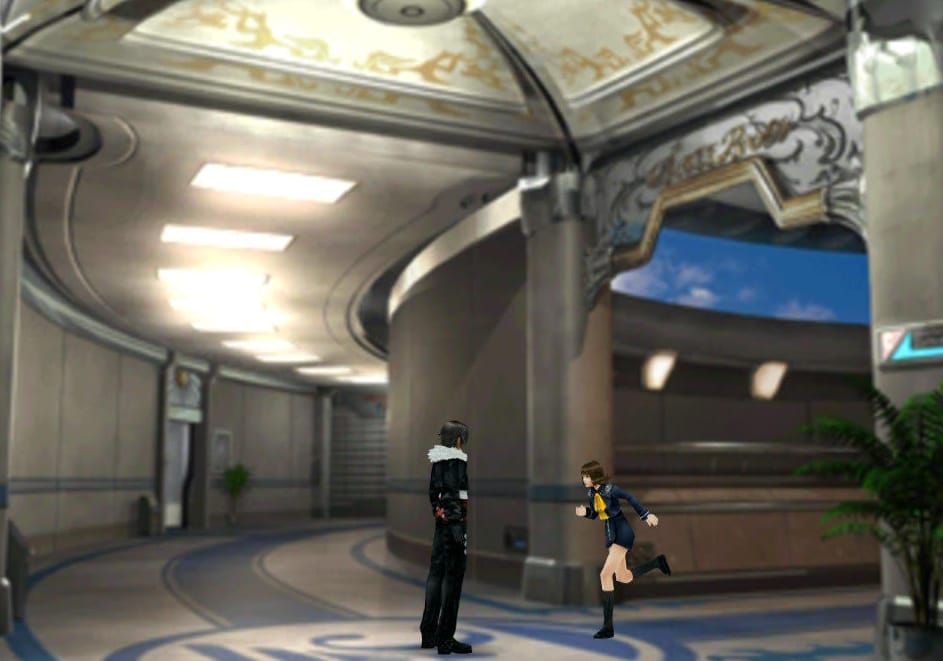
It grabbed hold of me, that game, that world, those teenagers with their life-or-death missions and their grievances and their fledgling romances. It was the first game that gave me something serious to think about. It was the first game that felt right for my age, as I let go of my childhood and moved into something new. And it was the first time I started to take video games seriously, to love them deeply in the same way I love books.

There's been a debate raging online about whether adults are intruding too much into teen spaces. Mostly sparked by this article, in which author Jiordan Castle reveals that most people buying (and reading) YA books are, in fact, adults.
It's kicked off a whole debate about pesky Millennials (us again!) intruding into spaces that don't belong to us. We're a bunch of stunted, overly sentimental adults who cannot let go of their childhood. We should be traumatising ourselves over A Little Life, not escaping into dystopian teen duologies or whatever.
And to some extent, I agree. YA is a ridiculously large age category at 12-18. Do you remember the monumental changes you went through between that age bracket? At twelve I was still secretly playing with my Beanie Babies and by eighteen I'd met the man I would go on to marry. It's a stupidly accelerated life stage.
When you insist on making YA consistently darker, lustier, and bloodthirstier, you're alienating the youngest in the group. Teens deserve literature that is actually for them. Not books that are marketed to teens but secretly written for 35-year-olds who want more sex scenes in their epic fantasy novels.

I've been thinking about this because there is a point at which you move into a new stage of life and it's often easier to identify it after the fact. When I was in my early twenties, I still enjoyed YA. I liked the urgency, I liked the big emotions, I liked the fast-moving plots. I was young, and I enjoyed being young. I was quite buoyant, back then. We went through a lot of shit and I always managed to be cheerful and optimistic about everything. I couldn't ever imagine myself being any different. I couldn't imagine myself being a grown-up in the same way my parents were.
And then at some point, around the age of 25, a small change happened. I picked up a YA novel that was super popular at the time and figured I'd enjoy a bit of shameful escapism, and I suddenly found it exhausting. I had a baby by then, so admittedly I found everything from brushing my teeth to putting my socks on exhausting. But there was something about the huge emotions and the fact that nobody ever bloody communicates properly with each other that I found really tedious all of a sudden.
I'm not being a snob here. I did still enjoy a YA from time to time. Rainbow Rowell's Landline had a choke hold on me for a little bit, back when I was a stay-at-home Mum with a baby and a toddler at home (I got rid of the book eventually but the nuzzling scene will stay in my mind forever). But mostly, I felt a bit uncomfortable reading YA, precisely because it felt like intruding into something that no longer belonged to me. I had crossed an invisible threshold, the first one in a series of many. I'd say it's sad, but it's not really, because to use a cliched phrase, it's a privilege to grow older.
There are rich benefits to be found from enjoying slower, deeper, character-driven novels that take forever to read. Like Remains of the Day, which I read for a book club I was in at the time. I thought I didn't like it. I thought it was boring (sorry). Then I got to the end, and I realised that all this time, the character of Stevens had been quietly and subtly getting under my skin until suddenly it was over and I was completely undone by the ending.
Look, I'm not going to sit here and say proper adults shouldn't ever read YA. I spend a huge amount of time enjoying and writing about things that other adults write off as childish and I do understand that the boundaries are silly, really. It's 2024, the world is going to shit, and it's okay to look for things that give you comfort. But I don't think it's okay to warp the genre to fit the needs of adults when it's not for them. Ultimately, we're the ones intruding on their space.

The reason why I'm talking about this is because that's how I felt revisiting FFVIII recently. After an evening of playing it I turned to Chris and said 'Was it always this angsty?' and he immediately said 'Yes.'
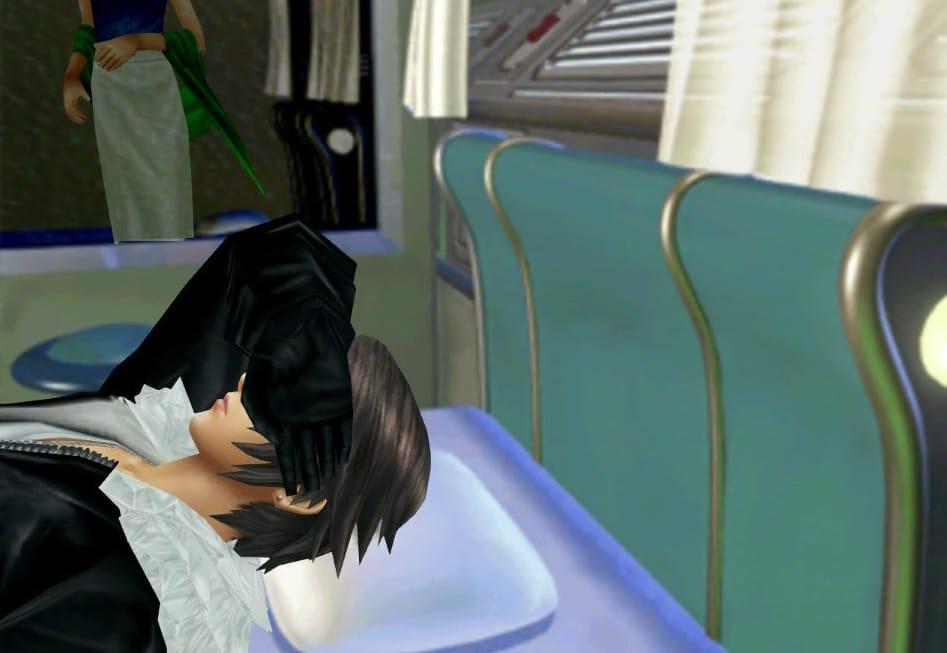
Squall is the epitome of teenage angst. He's got the attitude, the darkness, and the hair he can moodily run his hand through from time to time. He's self-centered at times, convinced of his own righteousness. He falls in love, not in a tidy way, but in a sort of dramatic and quickly-escalating manner instead. The story moves rapidly, and grows beyond just Balamb Garden and its teenage inhabitants; it becomes about saving the world, obviously. The characters come of age because they have no choice but to grow up. But they're still authentically teenagers throughout.
It's a really good depiction of teens, I think. Of their lives and relationships and their youth, even in the backdrop of the apocalypse.
Now I'm 35, and I'm still enjoying it, actually. I love this game with my whole heart and I will defend all of it (even the junction system). But it feels so different now. Balamb Garden was so important to me that now, replaying it, it almost feels like visiting a house I used to live in. It's full of fond memories, but it doesn't belong to me anymore in quite the same way.

I wonder what would happen if we categorised video games like we do books. I know we have age ratings, but that doesn't feel the same to me; it feels like a restriction rather than actual guidance.
I just don't think you can do it with games in the same way. Super Mario Bros Wonder, for example, has just taken up a huge number of hours in my life as an adult, and I loved every moment of it, and not once did I feel 'too old' for it. Aesthetically, it looks like a psychedelic child's wonderland. It looks like diving into a kid's imagination: What if the pipes moved? What if Mario got all tall and skinny like a PEZ dispenser but you could only see him in shadows? What if you could play as an elephant?
But not once did I think 'Hm, I am too grown-up for this.'
Replaying Final Fantasy VIII, however, did feel a bit like I was too old for it. I enjoyed it but not in the same blissful way I did when I was the same age as the characters. It's the kind of game that hits differently when you play it at the same age as the characters.
I dunno, I suppose it's got me thinking about how games are marketed, or at least, how they were back then. I got FFVIII by chance because my Dad spotted it in the second-hand section of Gamestation and thought oh, that's a bargain for the number of discs you get. He didn't have a clue about genres or what would work for me, he just went for it based on sheer pound-to-hour value. And it was a joyful little twist of fate that meant the world to me. The first game that connected with me on an emotional level. What a stroke of luck that he got it for me at just the right time.

Maybe when I'm reviewing games, if I come across one that I would have particularly loved as a lonely teenager, I'll point that out. I'll write it in bold: you should give this to the teens in your life and maybe it'll spark something in them that will last forever. If the editors allow it, obviously.


